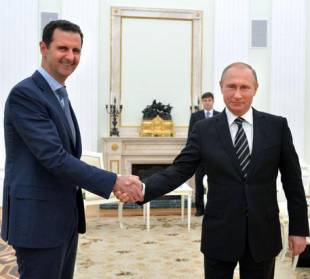When Money Dies
In
part-I of the dispatch we talked about what happened during the first two days after Indian Prime Minister, Narendra Modi banned Rs 500 and Rs 1000 banknotes, comprising of 88% of the monetary value of cash in circulation. In
part-II, we talked about the scenes, chaos, desperation, and massive loss of productive capacity that this ban had led to over the next few days.
Indian prime minister Narendra Modi – another finger-wagger, as can be seen in this photograph. Beware finger-wagging politicians, as we always point out. Modi now plans to
impose income tax penalties on large bank deposits; the State’s rapaciousness knows no bounds and evidently the mere possession of some arbitrary amount of money considered “too large” now means one is deemed a criminal
a priori in India. It goes without saying that the concept of property rights is alien to Modi. [PT]
Photo via indianexpress.com
Now, two weeks later, the situation is getting much worse, and more desperate. It is obvious that Modi single-handedly took the decision to ban the banknotes, with most people in his cabinet and virtually all in the central bank oblivious to his plan.
There is virtually no visible opposition to the enforced ban, for any politician who opposes the ban risks having his own misdeeds — and they are all corrupt — brought to the public space by Modi. A true demagogue, Modi, has already convinced the gullible, salaried middle class that anyone who opposes the ban is hiding corrupt money and is anti-national.
With every passing day, it has not only become clearer that the ban was of no use to eradicate hidden cash, but has also inflicted deep, wide and irreparable damage to the society. The economy is rapidly moving toward stagnation. The lives of literally hundreds of millions are in deep chaos.
This event may well go down in the history books as one of the worst man-made crises ever.
Cash conversion has been reduced to Rs 2000 ($30) per person. As a result people are facing humiliation and stand in queues for as much as 12 hours or more. Often repeated visits to the bank are necessary, with no guarantee that the bank will have cash available for the conversion. Old and disabled people, the 25% of India’s society without ID-cards, and women (unless they are prepared to be molested) don’t even have this chance. For those who are able join the queues, the scene has turned into a battlefield, with people fighting among themselves and getting brutalized by the police. But so far most people seem to still carry a favorable opinion of Modi, backed by cult-like “intellectual” climate created by the salaried middle class (who lack critical thinking and reasoning capability), and supported by the international media and institutions like the IMF, i.e., people who are sitting in Western cities have no clue about the realities on the ground. But all this will change as the stories of personal suffering should eventually start to dominate over the propaganda—reality does have a way of catching up. But India’s descent toward a police state is now written in concrete. Even if Modi eventually goes, a new demagogue will take his place.
Should a single person have so much power to be able to destroy the lives of almost one out of every five human beings on the planet? On this occasion it may be worth reminding ourselves that Modi also has the authority to launch nuclear bombs.
Modi suffers from worst possible type of corruption: an insatiable desire for personal glory at any cost, an extremely deep moral and spiritual corruption. He also represents the worst aspect of democracy: a demagogue who caters to an irrational populace’s cravings for self-identity and release from self-responsibility.
The government monopoly on cash economically connects 1.3 billion Indians. The perceived value of this paper currency does not comes not from any value inherent in it (it is just as irredeemable as other fiat monies), but from government edicts.
Cash is the thread that weaves relationships, transactions and commitments. For the proper functioning of society, it is absolutely crucial that people have a liquid medium of exchange, the essential lubricant to effect trade in today’s complex economy. Today, win-win transactions — except for barter, which has emerged in many parts of India — can no longer take place, for the monopolistic money instrument, India’s fiat currency, has been paralyzed by Modi.
Two millennia of progress in money have been destroyed. Rural places are increasingly falling back on barter. In a barter economy, economic calculation is no longer possible; only the most basic economic exchanges can take place. The market will have to adopt alternative media of exchange if the coincidence of wants problem is to be overcome.
Should a single person have the authority to flip a switch and bring all trade, transactions, indeed the entire economy to a halt?
As it stands, money is now dead in India – and a police state is rapidly encroaching. Both at home and abroad the only topic of conversation for Indians is the currency ban. If they are not busy planning how to escape the depredations of the tax authorities (whose minions are rapacious and will insist that people be obsequious and pay them large bribes), people exchange slogans, sound-bites and mere hopes – which seems to be the best India’s irrational society can do. Should this be all people are communicating about? Human beings were destined for higher things in life, not merely for the task of protecting themselves against the State.
What tyranny, socialism and an authoritarian order enforced from the top down mean for those who have been reduced to mere cogs
Crumbling Institutions
Most people — particularly the salaried middle class — still seem to have a favorable opinion of Mr. Modi. They have been indoctrinated – in India’s extremely irrational and superstitious society – to believe that this demonetization will somehow alleviate corruption and that anything but support of Modi’s actions is anti-national and unpatriotic.
This gives me pause to reflect.
What a crazy idea it is to have a State monopoly on money, particularly a money that carries no inherent value and depends on regulatory edicts. On a deeper level, it makes me reflect on why for the culture of India — which is tribalistic, nativistic, superstitious and irrational — “India” is actually an unnatural entity.
Such a society should consist of hundreds of tribes and countries, which is what “India” was before the British consolidated it. In a tribalistic and irrational society, decentralization makes life much safer and makes the market more free, as complex decisions will be taken on the local level, where they belong.
India’s institutions — not just organizations, but larger socio-political beliefs — have begun to decay and crumble after the British left, losing their underlying essence, the reason for which they had been institutionalized in the first place. This degradation is now picking up pace. They must eventually fall apart — including the nation-state of India – to adjust to the underlying culture .
Let us consider some of these institutions. Western education implanted in India has mutated. It is making individuals cogs in a big machine, all for the service of one great leader. Public education and the mass-media have become instruments of propaganda.
Complexity and the diversity of options that technology brings make an irrational thinker extremely confused, forcing him to seek sanity in ritualistic religion —hence the increase in religiosity in India and elsewhere in the region. This has happened despite the explosion in information technology.
The concept of the nation-state, when it took hold in Europe, was about the values the emergent rational and enlightened societies of Europe shared and had collectively come to believe in, at least among their elites. In India, the idea of the nation-state has morphed into a valueless thread, which binds people together through nothing but a flag and an anthem, symbols completely devoid of any values.
It has collectivized tribalistic and irrational people (an irrationality that is amply epitomized by the negative force Islam has become in the last two decades). In India and many similarly constituted countries, institutions that are not natural to their culture— the nation state, education, monetary system, etc. — must eventually face entropy, slowly at first, and then rapidly. India has now entered the rapid phase.
The death of money – amid a lack of respect for property rights (which again are a purely European concept that emerged from the intellectual revolutions of the last 800 years) – has been sudden and will very likely be catastrophic. It is a man-made disaster of gargantuan proportions. It will fundamentally change India in a very negative way, particularly if the demonetization effort succeeds, as it will have created the foundations enabling the rapid emergence of a police state.
A Rapidly Evolving Police State
After just a few years under Modi’s rule, there is no independent body left in India. Courts simply do not take a position against Modi. Not that the situation was much better earlier, mind. These days, journalists and opposing voices are increasingly stifled, while people at the fringe at least spoke their mind in the past.
For the first time, Hindus who were tolerant of intellectual differences have come to believe in Hindutava (fanatic Hindu nationalism, rapidly metastasizing as a particular mutation of nationalism).
Police now reserves the right to randomly search people’s possessions without a warrant. Those who live in India — in an economy in which 97% of all consumer transactions are in cash, most salaries are paid in cash, and most revenues are collected in cash — routinely transport and carry large amounts of cash on their person.
When policemen stop them, they often find some cash, which now ends up being confiscated and used for the Modi propaganda machine. None of this means that the confiscated cash is illegal, undocumented, or involved in tax evasion efforts. But truth has no place in propaganda.
A regular sight outside of bank branch offices, where poor desperate people laid off from work because of the monetary crisis must bear insults and physical harm from the police, all for the “greater good” and a “corruption-free” India
The fear among small businessmen and those with savings outside of the banking system, even if they are fully legitimate, is palpable. They are now deemed to be criminals and it is their job to prove themselves innocent.
They are extremely afraid of facing tax inquiries, which always involve heavy penalties and large bribes (the level of which has gone up noticeably in this police state). Whatever small focus they previously had on wealth-creation is now gone.
Historically, India has been a negative-yielding economy. Interest rates have mostly been negative in real terms. Stock market returns are negative-yielding, even before adjusting for business and jurisdictional risks. In such an environment, savers have no option but to keep their money in gold, or outside the formal economy.
Any oppression of savers forcing them to direct their money into the
negative-yielding formal economy will only lead to even more of their savings going into gold and escaping to foreign jurisdictions, eventually making India much less well-off. Even in the short-term, India’s economy is rapidly going into paralysis.
An old man has died in the queue at the bank. No one came to help him, due to the risk of losing their place in the queue. A large number of people have died in similar circumstances.
Corruption is Entrenched Across India
There is indeed a belief that at the very top, financial corruption has declined. I have no way to be sure of this, but I am tempted to believe it. But India’s proximal problem is with its bureaucracy and lower-level politics.
I have yet to meet a public servant who does not ask for a bribe. Simple financial corruption would have merely redistributed wealth. But the real problem with the public servant is his utter moral and spiritual corruption.
He expects citizens to grovel, a sadistic pleasure every Indian public servant enjoys in his demeaned existence. He is incapable of taking a decision or of thinking straight. It is here that the State suffocates society and wealth-creation. This is the real corruption characterizing the State.
More fundamentally, the real problem of India is not even its bureaucracy, but Indians as such. Indians will pay and take bribes when given an opportunity. They will strive to get into positions that give them the power over other people. They know exactly how others should live. The fingers of my hands exceed the number of Indians I have known who are different.
But hasn’t the way Indians view corruption changed in recent times, given that they are supporting Modi in his fight against corruption, however erroneous his policies might be?
An irrational society is also deeply hypocritical and can exist with massive cognitive dissonance. If you delve deeper into the issue, you realize that Indians do indeed want corruption to end, but with a minor exception. They want everyone to stop giving and taking bribes simultaneously and collectively.
As in any collectivist society, the individual has no value or meaning, so the individual Indian excludes himself when he wants corruption to end. He does not see how any meaningful impact on society at large might be achieved if he were to stop his own corruption. As any rational person can see, this does not add up – but in the irrational society of India it does seem to add up.
I often find myself in social conversations in which everyone talks badly about corruption in others and in the public space and makes proposals how to end it, and in the next breath, the very same people collude between themselves, engaging in corrupt practices. When I point the contradiction out to them, they simply and honestly fail to see it.
A rational personal cannot truly understand this issue, even when repeatedly told about it, as rational people suffer from a major handicap: they fail to understand the true nature of irrationality and how entrenched it can be.
In 2013, shortly ascending to India’s most powerful political post,
Modi was exonerated by the courts in the Gujarat riots case
ex-post – an exercise that
stretches credulity for many. It has taken many years for the SIT commission examining the case to release its report and quite a few people still think it was simply a whitewash attempt (we are in no position to judge or opine on the matter – we merely point out that it remains disputed – PT)
Cartoon by Narsimha P
He does not let his 94-year-old mom stay with himself. He claims he has given up his family for the nation. In his narrow vision, he is indeed correct. While he may personally not have taken any bribes in recent years, there is no way he could have risen to his position without having made massive and horrendous moral compromises, as the massacre of Muslims to gain Hindu votes demonstrates.
Financial corruption is merely the tip of the iceberg. Those obsessed with financial corruption forget something very important. Financial corruption is the most enlightened aspect of corrupt activities, for at least it is win-lose. Ending financial corruption from the top down cannot or will not improve a society. If it could, Eritrea and North Korea would be the richest countries in the world.
What keeps India in continual penury is its irrationality, its tribalism and its superstitions, of which financial corruption is merely a visible expression. There is no easy way to make a society rational. In the past, European missionaries even tried removing babies from their parents in a desperate attempt to bring about change. This didn’t work. Making a society rational is a process that could last millennia.
For now, India is in essence becoming more corrupt, even if obvious financial corruption eventually recedes for fear of the autocrat, as has been the case in Eritrea. India is becoming rather more nationalistic, fundamentalist, tribalistic and irrational.
The cult-like status Modi enjoys in India is the result of a lack of self-responsibility among Indians, their hope that despite massive inherent contradictions, the pain that corruption imposes on Indians can be got rid of through a magic wand – without self-reflection, or without them giving up corruption themselves.
Modi’s biggest support comes from the salaried middle class, whose members are mostly unaffected by the ban, and who may even have benefited as food prices have fallen as a result of the masses of starving poor people now unable to buy. Hence the middle class can claim to occupy the moral high-ground, albeit on the back of other people’s suffering.
Protesting farmers in India. Buyers cannot buy products for they no longer have access to their own money. Unable to sell, sellers are stuck with their produce and cannot pay their debts, driving them and their creditors into bankruptcy. This is a very complex vicious cycle. Even if liquidity is eventually restored — which is unlikely — the demonetization has crippled the production system.
Depending on who you ask, even food market sales have fallen by 20% to 80%. It is too early to say if people are eating less or if they are consuming emergency stores they have kept at home; perhaps both. If farmers cannot sell their food, they cannot buy seeds for the next planting season. A vicious cycle is going to get entrenched.
Indian Express photos: Pavan Khengre
Gresham’s Law Gone Wild
In the past two weeks, the government has completely failed to reliquefy the monetary system. With 88% of outstanding currency now illegal, people are rushing to convert the banned currency they hold into Rs 100 or lower denomination banknotes. Once these or the newly printed banknotes end up with financially strong persons, they straight-away go under the mattress.
The result is that the remaining 12% of the monetary value represented by banknotes that are still legal is rapidly going out of circulation, and so is most of the newly issued currency. Markets are empty. This means cash is not trickling down. The poorest 50% of India’s population, who have no reserves, are the worst affected and are going hungry.
16th century British financier Thomas Gresham famously explained in a letter to Queen Elizabeth upon her accession to the throne that “good and bad coin cannot circulate together” and explained that due to the coin debasements practiced by her predecessors Henry VIII and Edward VI, “all your fine gold was convayed [sic] out of this your realm”.
Ironically, the banned Rs 500 and Rs 1,000 banknotes are today the most used currency. Those who have these banknotes and are afraid of going to the bank, mostly because they are worried about unnecessary problems from the rapacious and extremely corrupt tax department, force their workers and suppliers to accept the banned notes.
In the local market, if you want to buy gold or silver, you must pay in the banned banknotes — ironically the sellers to do not want to accept official legal tender. The banned notes, when used in large quantities, are circulating at 80% or less of their face value. Mafias have spontaneously emerged around the country. They ensure that these banknotes are deposited across hundreds of millions of accounts. The mafia makes a neat 25% profit.
The mafia is also providing special favors to certain politicians by converting their ill-gotten money for no commission. Who thinks this will reduce corruption?
Many workers from factories and shops, even if they have not yet been thrown out of work for lack of demand or due to the cash-crunch affecting their employer, have found a very lucrative profession. They now work for the money-converting mafia. This system is already fully in place a mere two weeks after the announcement of the ban.
The underground system is rapidly distributing the banned currency notes across a large number of people who then deposit them. This market is so liquid and easily accessible, that for all intents and purposes there is no way that someone with the banned notes cannot exchange them, albeit at a loss. So much for Modi’s claim that those with large amounts of undeclared money won’t be able to convert or deposit it.
But this will get much worse. When all this is over, hundreds of thousands of small-time bullies trained by the mafia will have made a small fortune. They will have also have found out who the rich people with cash are. A social scientist will conclude that this segment of society will be extremely corrupt and criminal. These people will have gotten a taste for easy money, in contrast to patient and laborious wealth-creation.
Moral Dilemmas Galore
Poor people have traditionally never systematically robbed shops in India. Out of hunger, they are experimenting with this for the first time. They are learning that when a mob robs, the police disappears. Social relations have a taken a very serious hit, fragmenting society. Society stands hugely divided, except in terms of the thread that connects them to Modi, the autocrat.
Modi, the snake charmer?
Cartoon by Chappatte
What keeps transactions in any society going is liquidity in the money-markets. Given that most people are stuck with banned currency, they are telling anyone they owe money to that they will only make payment in form of the banned notes, which now trade at a discount.
This massive moral dilemma has come to appear because people found themselves stranded with banned notes overnight, and want to avoid the 20% hit in value that they will have to take by converting them through the mafia.
Imagine someone who has collected ten million rupees in cash, facing the ban a day before he had to return the money to someone he borrowed from. What is he likely to do? Force his creditor to accept these banned notes, or bear the loss of 20%, which he might not have the capacity to absorb?
Spouses are fighting, as they have suddenly become aware that their significant other has been hiding cash for a rainy day. Poor people are almost invariably getting paid in banned notes, which requires them to line up in queues the next day to convert what they received, wasting at least 50% of their productivity – assuming they have a job.
There are moral dilemmas galore. But this had to happen in a society run by rulers who have absolutely no sense of morals, reason, not to mention respect for private property.
Money deposited in the banks is mostly frozen, something that people are not yet paying much attention to, for all their focus is on getting rid of the banned cash. The problem of frozen bank accounts will surface once the current conversion stops by the end of this year. That is when the salaried middle class, which mostly supports Modi, will finally wake up.
It is also clear that Modi has to take more and more increasingly repressive steps to keep people from taking protective measures. As noted above, India will rapidly become a police state.
The worst sufferers are poor people, whose ownership of currency was neither unaccounted for nor corrupt. Not being street-smart and not understanding how banks work, as they are often bullied by standoffish bank officers, they are stuck with the old currency, clueless as to what to do.
They are the silent 25% to 50% of the India population. They cannot even participate in the money-converting mafia, because they don’t understand many of the things that look quite simple to members of the middle class.
Many tourists have found themselves stranded without money in India as well. Video by mint.
Conclusion
India faces a highly uncertain future. A vicious cycle has been set into motion by Modi and it will not end well. Unpredictable problems and unintended consequences are bound to surface incessantly. If Modi comes under sufficient pressure, he could easily go to war with nuclear-armed Pakistan
Modi, in his permament search for personal glorification could easily impose a state of emergency or martial law. This is in fact extremely likely, perhaps even inevitable, for the so-called intellectuals will beg for it.
As we have said previously: this will go down in the history books as one of the most naïve, least thought through policy decisions ever, a massive man-made disaster.
P.S.: potete usare la funzione TRANSLATE di Google(sulla colonna di destra), selezionando prima un qualsiasi linguaggio e poi successivamente, l'italiano, per avere la traduzione automatica.















